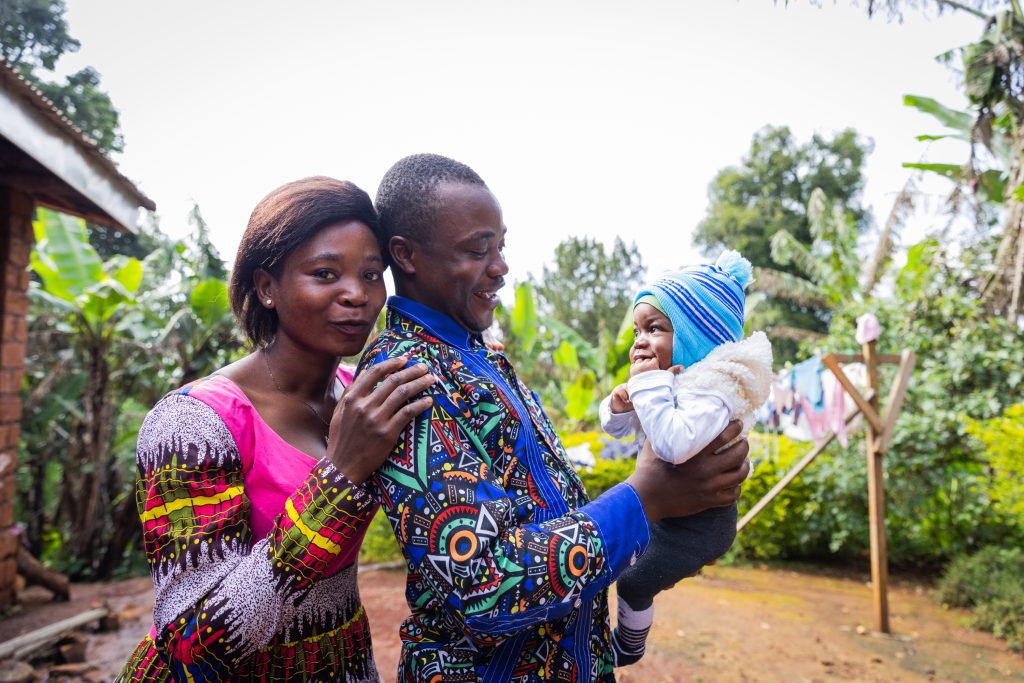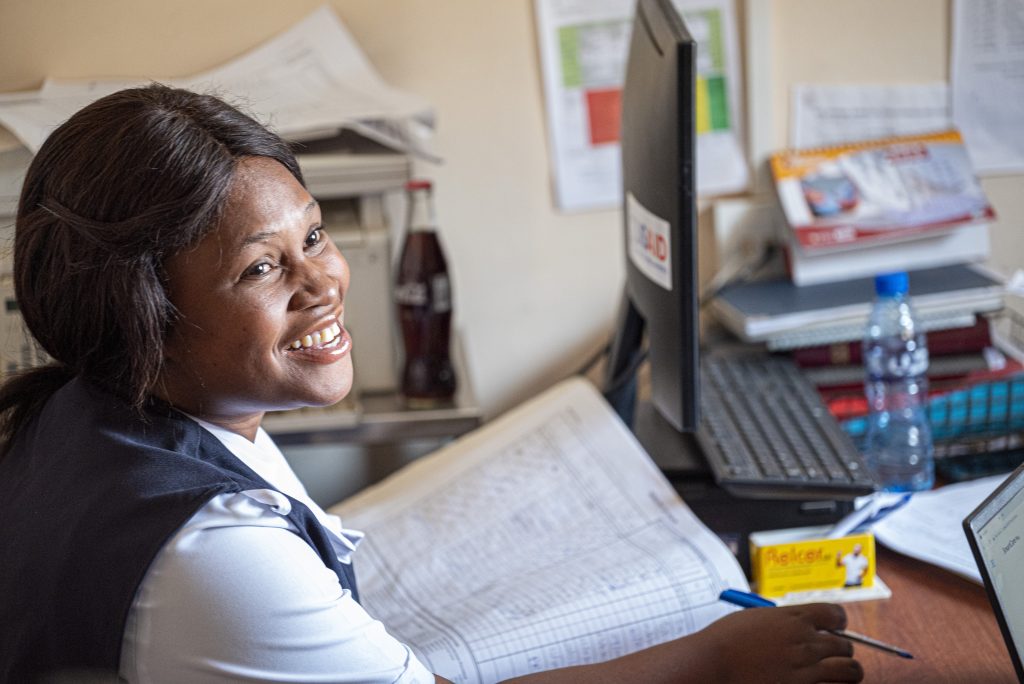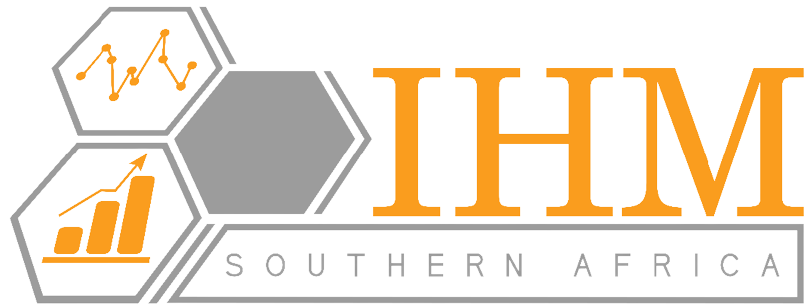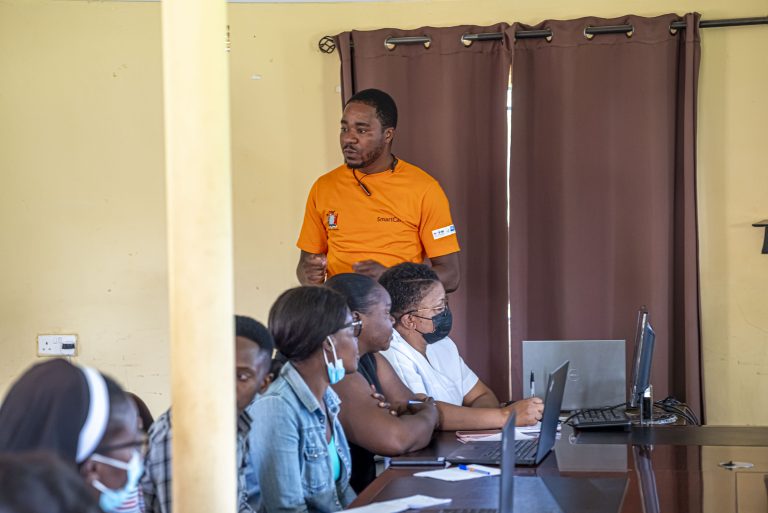Digital health interventions have a significant role to play in achieving Sustainable Development Goal (SDG) 3, which calls for good health and well-being for all people of all ages. By making healthcare more efficient and accessible, digital health technologies can help improve health outcomes for all.
Zambia is embracing the power of digital technologies to transform its healthcare landscape, guided by the World Health Organization’s (WHO) Digital Adaptation Kits (DAKs). These toolkits provide clear guidance based on WHO’s recommendations for healthcare practices, systems, and data use, ensuring that digital systems align with global health standards.
The Family Planning DAK, the first DAK incorporated into Zambia’s national electronic health record (EHR) system SmartCare Plus, exemplifies Zambia’s Ministry of Health’s commitment to evidence-based healthcare. This initiative provides a structured approach to incorporating family planning into the digital healthcare system, ensuring that services are delivered efficiently and adhere to WHO best practices.
The DAKs play a crucial role in supporting the WHO SMART Guidelines, offering a structured way to implement digital health solutions and strengthening the adoption of WHO recommendations. The integration of the Family Planning DAK into Zambia’s SmartCare Plus involves a standardized process that enhances the system’s capabilities.

The country recently began the assessment of the current EHR system, software modifications, data mapping, and customization that will ensure seamless integration of linked health interventions, decision support, and program indicators. Adjustments to current clinical workflows and extensive training for healthcare workers will follow, ensuring a smooth transition.
The integration promotes data consistency and standardization, fosters interoperability, and contributes to increased digital literacy among healthcare workers. With a more robust EHR system, healthcare providers will deliver effective family planning services, adhering to evidence-based guidelines. The streamlined workflows will reduce administrative burdens and potentially lead to more efficient healthcare processes. This initiative aligns the Ministry of Health’s healthcare practices with global standards and holds the potential to improve overall health outcomes.

KEY LESSONS LEARNED FROM THE DAK IMPLEMENTATION IN ZAMBIA SO FAR INCLUDE:
Alignment of DAKs with HMIS Reporting Tools
Early alignment of the draft DAK package with the Health Management Information Systems (HMIS) reporting tools was crucial to ensuring seamless integration of data collected through digital systems into Zambia’s national health data infrastructure. This alignment process should be incorporated from the onset of content review and adaptation processes to avoid potential delays and rework of the alignment of the DAK documentation.
Accelerating L1 (first level of care) Adaptation Processes with DAKs
DAKs can significantly accelerate the L1 adaptation processes, enabling countries to quickly adopt and implement the latest family planning guidelines and recommendations. This acceleration is particularly important for countries with limited resources or expertise in adapting global guidelines to their local context.
Integration of DAKs into Zambia’s Updated FP Guidelines
Zambia has taken the lead by incorporating DAKs into its updated family planning (FP) guidelines, demonstrating a strong commitment to evidence-based healthcare practices. This integration ensures that healthcare providers in Zambia have access to the most up-to-date information and tools to deliver high-quality FP services.
Informing Content Review Processes for Other Countries
Zambia’s experience with content review and adaptation processes has informed similar processes for other DAK-implementing countries such as Ghana, Malawi, and Zimbabwe. This sharing of knowledge and expertise is essential for building capacity and ensuring that all countries have access to the latest DAKs processes.
Embracing Interoperability and Data Governance
Interoperability and data governance are essential for ensuring that health information systems can communicate effectively with each other. By adopting open standards and implementing data governance policies, Zambia can ensure that its health data is accessible and usable for all authorized users.
Zambia’s digital transformation journey offers valuable lessons for nations seeking to harness the potential of WHO’s Digital Adaptation Kits. As Zambia’s healthcare odyssey unfolds, the evidence-based success story continues to inspire and pave the way for a new era in global health.



